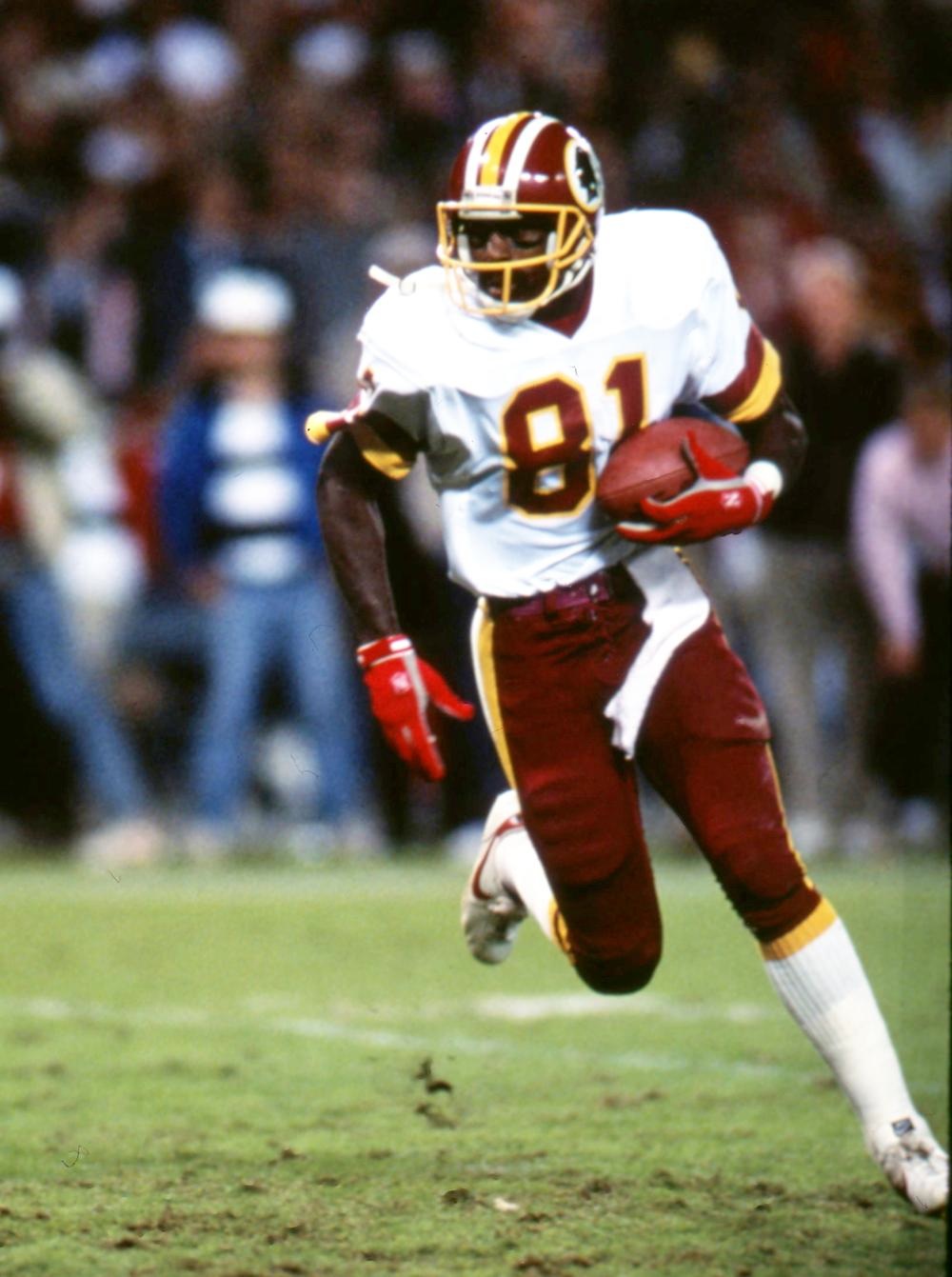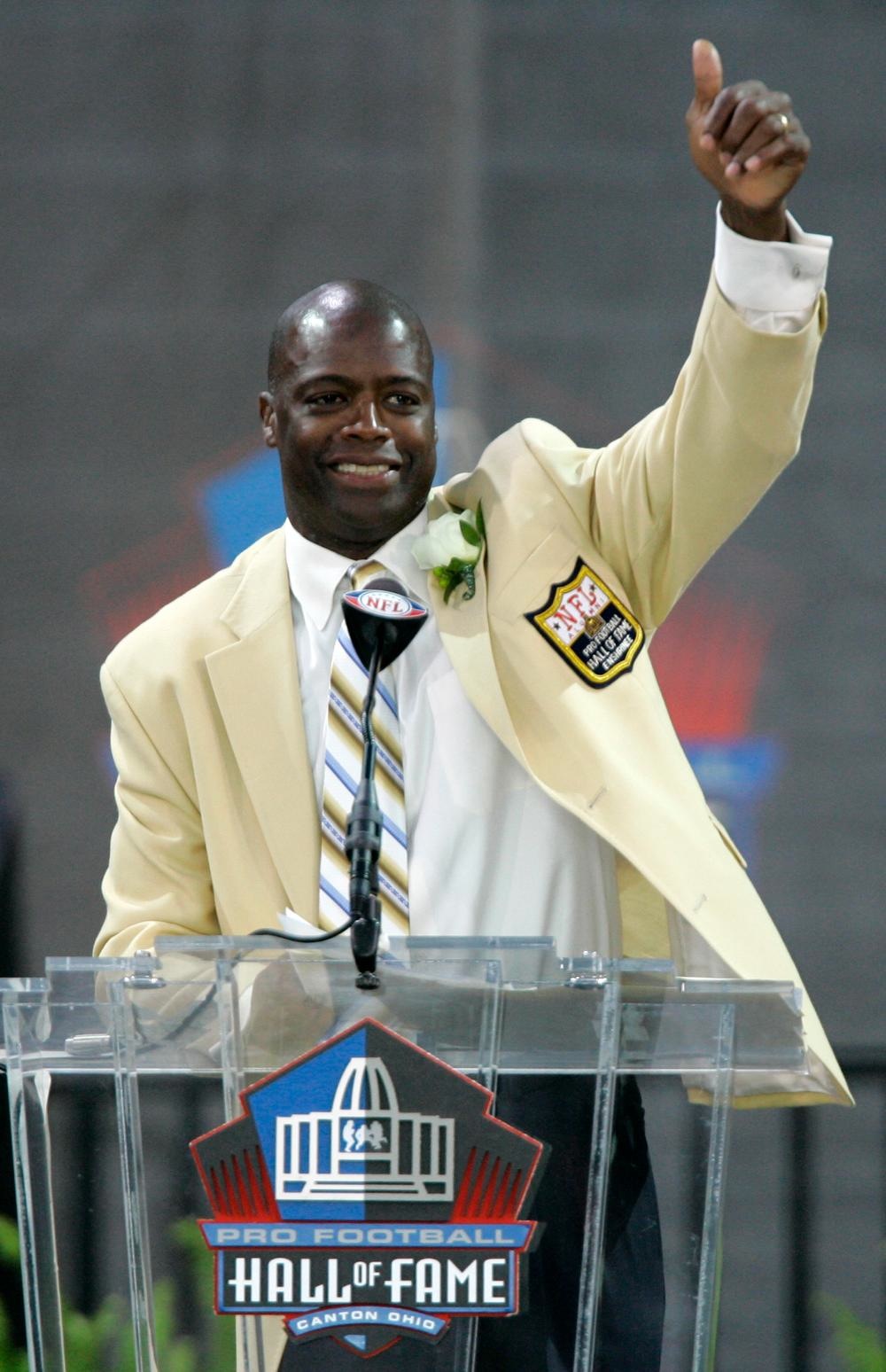Two Redskins Hall of Famers Favor Changing Offensive Team Name
Two of the Washington Redskins most celebrated players of all time came out Tuesday in favor of changing the contentious name.
Art Monk and Darrell Green, both inducted into the NFL Hall of Fame in 2008, told Washington’s WTOP-FM 103.5 that if Native Americans take umbrage with the name 'Redskins' or the like then a name change should be “seriously considered.”
“[If] Native Americans feel like Redskins or the Chiefs or [another] name is offensive to them, then who are we to say to them ‘No, it’s not',” said Monk.
Former cornerback Darrell Green, who joined his teammate for the radio show, echoed Monk’s sentiments.
“It deserves and warrants conversation because somebody is saying, ‘Hey, this offends me,’” Green told WTOP-FM.
Green lamented that a dialogue like this one comes with sundry complications.
“Unfortunately in this country, conversations mean legal, dollars, suits,” he said.
The contentious debate over whether the Washington Redskins name is disparaging continued in court last May, more than 20 years after the dispute began.
A group of five Native American plaintiffs – each between the ages of 18 and 24 – appeared before three judges on the Trademark Trial and Appeal Board in Washington D.C. to argue against the use of the name, stating that the term ‘Redskins’ is, in fact, a racial epithet and therefore should not be protected by Federal trademark law.
The law states that any trademark considered racist is illegal, especially if it is deemed “disparaging, scandalous contemptuous, or disreputable.”
Attorneys representing the Washington Redskins counter argued by stating that the team’s name is not meant to be offensive and that the club endeavors to honor Native Americans.
On May 2, the court said the plaintiffs must prove that the name was disparaging to a large number of Native Americans at the time the Washington team received its trademarks in 1967 through 1990.
Washington Redskins General Manager Bruce Allen, who attended the hearing, said he felt it is “ludicrous” that anyone would think the team’s owners are trying to offend the Native American community.
According to a story by The Associated Press, Allen said, “if you look at everything that we represent, you’ll find that the Washington Redskins has a positive image. And much more positive this year with a winning season. Our television ratings, our fans, our Washington Redskins charitable organization and what it’s done for this community.”
One of the plaintiffs, Amanda Blackhorse of the Navajo Nation, wrote in an opinion editorial for The Huffington Post that people wouldn’t call a Native American a redskin in face-to-face conversations, “just as you would not refer to an African-American as the n-word, or refer to Jew as a ‘kike’ or a Mexican as a ‘wet-back’ or an Asian-American as a ‘gook,’ unless you’re a racist.”
This case, which was filed in 2006, is the second attempt by a Native American group to legally contest the team’s use of the term ‘Redskins.’
In 1999, the Washington Redskins were stripped of its trademark rights, but that decision was later overturned in an appeal. At the time, the board argued that the plaintiffs had waited too long to bring a case against the team.
Suzan Shown Harjo of the Cheyenne and Hodulgee Muscogee nations and one of the six plaintiffs who first sued the team in 1992, argues that the name ‘Redskins’ is nothing less than “racist.”
In a column written for The Guardian in January, Harjo posited that every major Native American organization has called for the name to change and demands that the NFL should disavow it.
“Many native people cannot bear to say or hear the r-word, while some use it, or ‘skins’, in the same way that some African-American people use the n-word, but are not OK with those of other races using it,” she wrote. “Lawyers for the team's owners cite any use of the r-word by native persons to support their contention that we are fine with it.”
Harjo went on to postulate that the team has even “spied around” on the Facebook pages of the five plaintiffs of the most recent suit to see if they’ve used the term Redskins loosely and in jest.
The debate over the team name also sparked earlier this year when Washington D.C. Mayor Vincent Gray said that if the team ever wants to relocate to D.C. from its home in Landover, Maryland, they will need to seriously entertain the idea of changing its name.
“I think it has become a lightning rod, and I would love to be able to sit down with the team … and see if a change should be made,” he said as reported by The Washington Post.
Gray’s suggestion is echoed, if not motivated, by several legislators, including Rep. John Lewis (D-Ga.) and Washington D.C. Del. Eleanor Holmes Norton (D) who’ve each encouraged the team’s owners to change the name.
But some argue that it will take a larger shift in majority opinion to affect real change.
According to a recent CBS online survey, 11.9-percent of readers believe that the Redskins name is a racial epithet and should be dropped, whereas an overwhelming 81.8-percent feel the name is not offensive and should be permitted to remain.
Although the American consensus appears to lean toward the position of the Washington Redskins, some news organizations have forbade the use of the name in its publication.
For example, The Kansas City Star has had a long-standing editorial policy against using 'Redskins' in its prose.
In response to reader complaints, Public Editor Derek Donovan wrote last September that he’ll continue to believe the name is racist and disparaging.
“I remain unconvinced by every argument I’ve ever heard that the name is not a racial epithet, plain and simple,” he wrote. “And I’ll even break my usual rule about commenting on issues outside The Star’s journalism to say that I find it inconceivable that the NFL still allows such a patently offensive name and mascot to represent the league in 2012.”
The changing of a professional sport team’s name isn’t new to D.C. In 1995, owners of the NBA’s Washington Bullets changed its name to the Washington Wizards. The former name was said to have drawn attention to the rampant violence which plagued D.C. in the early 1990s.
Earlier this year, The Washington Post unearthed a document which lists license plates that have been banned or rejected by D.C. legislators. The D.C. Department of Motor Vehicles dubbed the document “The Forbidden Tag List.”
According to the story, “many of the words and phrases listed in the lengthy document are crude and/or profane and/or mysterious and/or ridiculous. But this is the sports section, and lo and behold, there on page 36, was this: ‘REDSKIN.’”
A decision in the case against the name is expected to take as long as year.
Were the Trademark Trial and Appeal Board to decide in favor of the plaintiffs, the expectation is that the Washington Redskins would be forced to change its name in order to make money off its merchandise.
To date, the team is one of the top-five grossing clubs in the NFL.
Read more at http://indiancountrytodaymedianetwork.com/2013/07/23/seriously-consider-changing-redskins-name-says-hall-famers-150550

